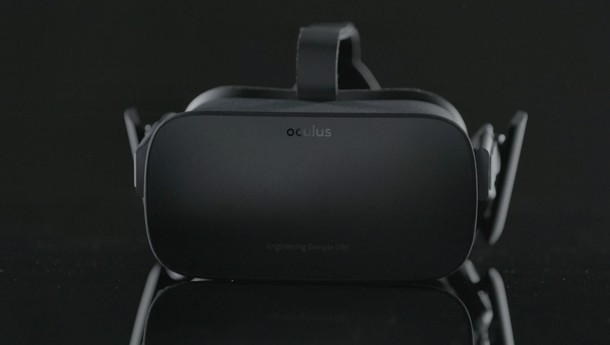Oculus’ Luckey On Rift Price: ‘I Handled The Messaging Poorly’

Yesterday must have been one of conflicting emotions for the team at Oculus. The company announced pre-orders and “sold out” of its first wave (and likely its second wave) of Rift headsets pushing out delivery date from March to May for those jumping in now.
As pre-orders opened, the spotlight was on the price. The Rift, which is priced at $599, is more than many expected. When you factor in the price of a future-proofed PC, consumers could be looking at upwards of $2,500 all-in.
$1,500 bundles will be available, but those will likely be tuned to minimum specification. That means an upgrade might be necessary more quickly in order to get the kind of visual fidelity PC gamers crave.
Following the busy day, Oculus founder Palmer Luckey took to Reddit to conduct an AMA. Unsurprisingly, price inquiries were frequent. Luckey owned up to creating confusion on the path to yesterday’s reveal. Here’s what he had to say”
I handled the messaging poorly. Earlier last year, we started officially messaging that the Rift+Recommended spec PC would cost roughly $1500. That was around the time we committed to the path of prioritizing quality over cost, trying to make the best VR headset possible with current technology. Many outlets picked the story up as “Rift will cost $1500!”, which was honestly a good thing - the vast majority of consumers (and even gamers!) don’t have a PC anywhere close to the rec. spec, and many people were confused enough to think the Rift was a standalone device. For that vast majority of people, $1500 is the all-in cost of owning Rift. The biggest portion of their cost is the PC, not the Rift itself.
Luckey also points out that pricing expectations were set, in part, by what the developer kit 2 (DK2) cost. Developers and innovators were able to purchase one for $350.
“Another problem is that people looked at the much less advanced technology in DK2 for $350 and assumed the consumer Rift would cost a similar amount, an assumption that myself (and Oculus) did not do a good job of fixing,” he writes. “I apologize.”
One of the other concerns that Luckey and the Oculus team fielded was about the bundling. Some interested consumers inquired about a purchasing option without a bundled Xbox One controller or newly-revealed Oculus Remote.
“To be perfectly clear, we don’t make money on the Rift,” Luckey explains. “The Xbox controller costs us almost nothing to bundle, and people can easily resell it for profit. A lot of people wish we would sell a bundle without “useless extras” like high-end audio, a carrying case, the bundled games, etc, but those just don’t significantly impact the cost. The core technology in the Rift is the main driver - two built-for-VR OLED displays with very high refresh rate and pixel density, a very precise tracking system, mechanical adjustment systems that must be lightweight, durable, and precise, and cutting-edge optics that are more complex to manufacture than many high end DSLR lenses.”
For more on Oculus Rift pricing, you can read our analysis that takes into account historical data and perspective on product adoption. You can also read up on the pre-order details in our previous coverage.
[Source: Reddit AMA with Palmer Luckey]
Our Take
Expectations, especially with regard to price, are crucial for any product. That is amplified when the product in question is a first-to-market, highly anticipated piece of technology. Oculus should have communicated earlier that it had shifted its optimization strategy to quality over cost.
People had a number stuck in their head, and Oculus didn’t pull out the pry bar to fix it. At least Luckey seems to have learned his lesson and isn’t even hinting at the price of the Touch controllers due later this year.

Get the Game Informer Print Edition!
Explore your favorite games in premium print format, delivered to your door.
- 10 issues per year
- Only $4.80 per issue
- Full digital magazine archive access
- Since 1991









